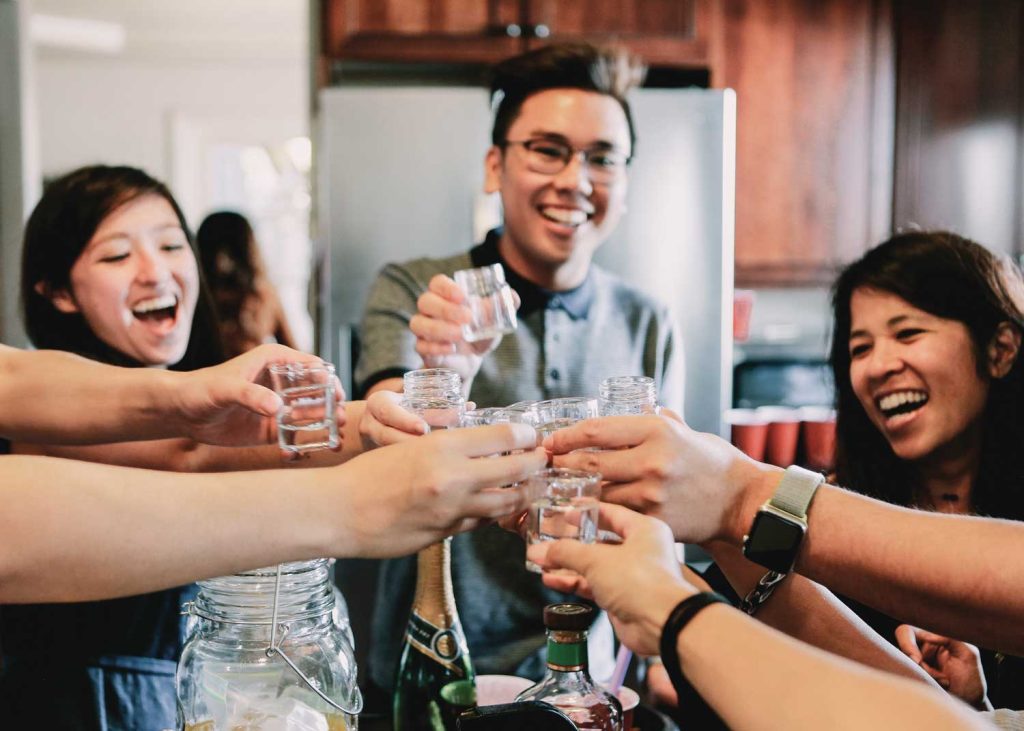Perhaps you are in a group of teens where drinking seems to be acceptable, and everyone is doing it. But they are not!
We looked at a sample representing over 2 million kids grades 7 – 12 drink in Canada and found that not all kids are actually drinking. We did find that:
- Boys tried their first drink at 13.3 years old.
- Girls tried their first drink at 13.6 years old.
- 23% of boys and girls reported high risk drinking (5 or more drinks at one time) This is what is referred to as binge drinking.
- 22% of girls drank sweet alcoholic drinks (e.g., Vodka coolers)
- 16% of boys drank sweet alcoholic drinks

Although this is still higher than it should be, it shows that not all kids are drinking, in fact, most kids are not drinking, so don’t be influenced by others and make this decision for yourself.
Underage drinking (drinking under the age of 18 yrs. in Alberta) is not considered safe. It is also illegal! While your brain is developing to what we believe is the age of 25, it is important to stay away from alcohol because of its possible harmful effects on your brain and body!

If you are considering drinking, there are ways to do it to keep yourself safer through these Safer Drinking Tips:
- Delay drinking as long as possible; at least until the age of 25
- Be open & honest -Speak to your caregivers about drinking. It is better to be open and honest.
- Pace yourself -Try not to have more than one or two drinks at a time.
- Have a full stomach – Eat before and while you are drinking alcohol
- Have fun but stay safe!
- Remember that drinking and pregnancy do not mix!
Article Reference:
Please note that Canada’s Low Risk Drinking Guidelines apply to adults. Refer to Canada’s Low Risk Drinking Guidelines for more information on safer drinking.
There is a Fetal Alcohol Spectrum Disorder (FASD) network in your area that provides supports and services. Please contact them if you have questions regarding drinking, sexual activity or FASD prevention.
